Technology
How Microchips Implanted Under The Skin Allow You To Pay Without Money Or Card
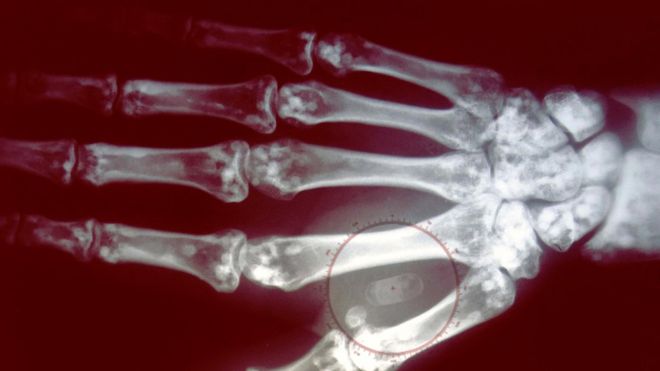
The small protrusion on the back of Dave Williams’ hand is the size of a grain of rice and is between thumb and forefinger. It is almost imperceptible, but when he uses it to open the door of his house, he has become the center of attention.
This British software engineer has a microchip implanted in his hand, an electronic circuit that works with wireless technology.
“I have a bad memory,” he told the BBC. So he decided to deploy this little device that allows him to not panic if he forgot his house keys.
It’s the same type of chip that is turning trend in Sweden and other western countries like Germany, Australia and New Zealand, where there are several initiatives to promote this futuristic technology.
But the case of Sweden draws even more attention. Thousands of people in the Nordic nation, about 3,000, according to a Nigeria News report in May this year, have already deployed the chip. It is possible that the number is even greater.
“More and more people in Sweden are putting the RFID chip in their hands and using it to open doors and even make payments,” Ben Libberton, a doctor of microbiology at Lund’s MAX IV lab in southern Sweden, tells BBC Worldwide.
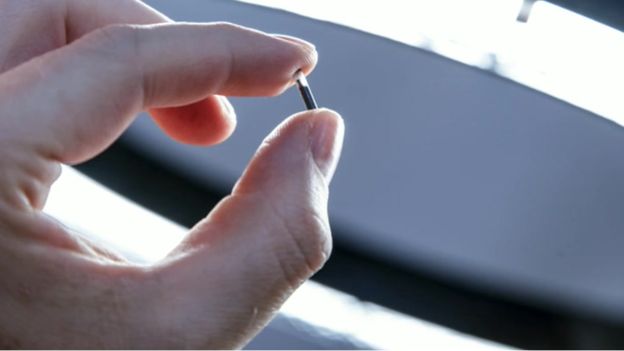
Microchips are the size of a grain of rice.
A “convenient”
An RFID, unlike a bar code, allows remote access to the information it contains. It is used in anti-theft devices, in ski resorts and also in identification chips for pets.
They are also present on most smartphones and electronic passports.
But in recent years, its use in humans has gained even more relevance. Sweden is leading this trend.
The subject started making headlines in 2015, when Epicentes, a Stockholm-based technology company, caused some controversy by announcing that it would deploy the chips to its employees.
With a twist of their hand, they could enter the building, use the copier and pay for coffee.
“The biggest benefit is convenience,” says company co-founder and CEO Patrick Mesterton in 2017. “It allows you to replace many things like credit cards or keys.”
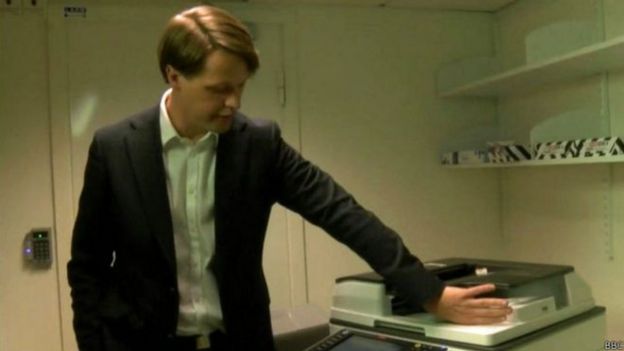
The chip can be used to power the copier.
Pay by hand
The chip enables contactless payments, a practice especially common in Sweden, where only 1% of the value of all transactions were made with cash.
Some of these transactions are made on trains.
The nation’s largest SJ train company, the largest in the country, is the first in the world to accept this type of payment.
When the bill collector passes, some passengers just place their hand near the employee’s smartphone, which has the application open. The printed passage seems like a thing of the past.

On this train, it is possible to pay the ticket by hand.
Each person who has such a microchip on hand should sign up on the company’s website to get a number and be able to pay.
Stephen Ray, communications director at SJ, knows the system very well, and he himself has a chip in his hand.
The employee’s cell phone screen indicates that the passenger has a ticket purchased. There he sees the number and the name of the person.
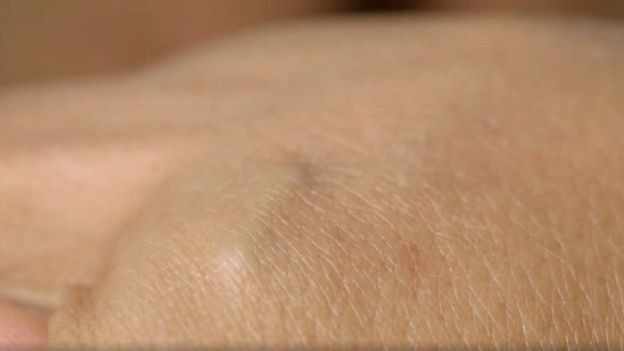
The microchip is implanted under the skin between the thumb and forefinger.
“Optional”
“The only information that SJ reads from the microchip is the membership number of the loyalty program,” Ray tells BBC Mundo.
“This number is not confidential and customer privacy is guaranteed, in our view,” he adds.
For the time being, this technology is only used in the company for regional travel. But the plan is to broaden the reach.
Still, Ray thinks it “will never be mandatory” for customers to deploy the chip and that “it’s just an optional service that we still consider a test.”
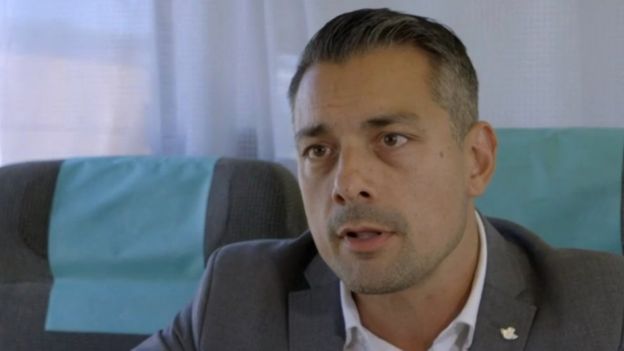
Stephen Ray, of the SJ trains company, has a chip implanted in his hand.
Stephen says the idea is for this initiative to extend to other areas and other types of payment of everyday life, such as a credit card.
However, not all are in favor of the chip or have such an optimistic view on it.
“This technology reduces the number of cards and devices we need, miniaturizes them and never let them get lost,” Libberton told BBC News World.
But the microbiologist says he is concerned about how chips can leave the privacy and security of their users vulnerable.
“As these chips are adopted in more digital services, they will reveal more data. It’s a fragile security issue,” he says.
“Imagine if you use it to unlock your house or access your bank account. I fear convenience makes it easier to access important data.”
And it leaves a question in the air: “The risks will be even greater when they start incorporating biological data into the chips. If a company knows more about your own health than you do, what are the ethical implications?”
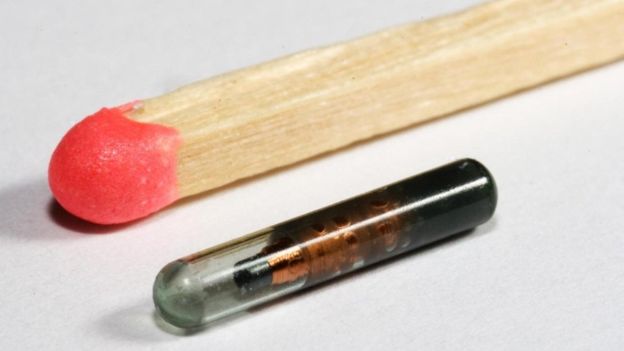
Its size is tiny, but can contain a lot of information.
